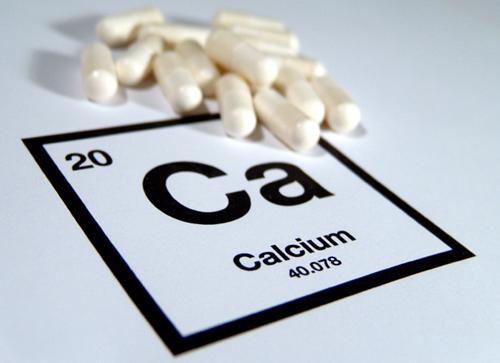You are here
Vitamin D supplements linked to lower risk of asthma attacks
By Reuters - Oct 24,2017 - Last updated at Oct 24,2017

Photo courtesy of healthtips25.com
Asthma attacks serious enough to require steroid treatment or hospitalization may be less likely when people take vitamin D supplements, a recent analysis suggests.
Researchers examined data combined from seven previously published studies with a total of 955 asthma patients who were randomly selected to take vitamin D or a placebo pill, in addition to any other medicines prescribed to manage their symptoms.
When asthma patients took vitamin D supplements, they were 54 per cent less likely to have an attack severe enough to require an emergency room visit or hospital admission, the study found. They were also 31 per cent less likely to have frequent asthma attacks requiring treatment with corticosteroids.
The apparent benefits of taking vitamin D were significant only in people who started out with a deficiency, however.
“The take-home message is that asthma patients who suffer with attacks [exacerbations] should get their vitamin D level checked, and if it is low, they should take a vitamin D supplement — there is negligible risk associated with doing this, and there is pretty good evidence to suggest that this could reduce their risk of having an attack,” said senior study author Dr Adrian Martineau of Queen Mary University of London in the UK.
“It’s very important to emphasise that asthma patients should not stop taking their usual asthma therapy,” Martineau said by email. “All of the studies included in our review looked at the effects of giving vitamin D on top of usual therapy.”
Worldwide, more than 300 million people have asthma, and the disease is responsible for an estimated 400,000 deaths each year, researchers note in The Lancet Respiratory Medicine.
In the study, participants lived in six countries on three continents and ranged in age from 1 to 85 years.
Vitamin D supplement doses varied across all the studies in the analysis. One study tested a 100,000 IU (international units) dose every two months; four studies examined daily doses ranging from 500 IU to 2,000 IU; and two studies explored giving patients vitamin D both daily and once every two months.
Supplements appeared to have the biggest impact on reducing the risk of asthma attacks in people who started out with blood levels of the circulating form of vitamin D that were below 25 nanomoles per liter (nmol/L), which is widely considered deficient. For people who started with circulating levels of 25 nmol/L or higher, there was some reduction in asthma attacks, but the difference was too small to rule out the possibility it was due to chance.
One potential explanation of the results is that vitamin D boosts immunity to respiratory viruses that are the major precipitant of asthma attacks, Martineau said. It also dampens harmful inflammatory responses in the airway that can contribute to the development of an asthma attack and may enhance the anti-inflammatory effects of corticosteroids for some people.
“In addition to benefits in asthma, vitamin D supplementation can reduce risk of colds and flu in people who don’t have asthma and protect against rickets in children and osteomalacia [softening of the bones] in adults,” Martineau said.
“It is possible to take too much vitamin D, and if you do, it can cause high calcium levels that can result in kidney damage in extreme cases,” Martineau added. “However, this would not occur at the doses investigated in the trials that contributed to our analysis.”
The study didn’t examine the ideal dose of vitamin D or test possible reasons the supplement might ease asthma symptoms. The small studies in the analysis also had different methods of measuring the effectiveness of vitamin D for reducing asthma attacks, making it hard to say for sure who would benefit most from supplements.
“This analysis suggests that vitamin D supplementation may be beneficial in patients with asthma, although the evidence is not yet strong enough to recommend its use,” said Dr Richard Beasley of the Medical Research Institute of New Zealand in Wellington, coauthor of an accompanying editorial.
“Vitamin D supplementation is potentially an attractive therapeutic approach as it is relatively cheap, and vitamin D deficiency is common in many populations where asthma is also common,” Beasley said by email.
Related Articles
Corticosteroid drugs given via inhalers to children with asthma may suppress their growth, according to two systematic reviews of scientific studies on the issue.
People with asthma-related breathing problems may be at increased risk for bone loss, according to a new study.
BALTIMORE — Calcium supplements that many women take to boost bone health increase their risk for heart disease, a new study by resear












